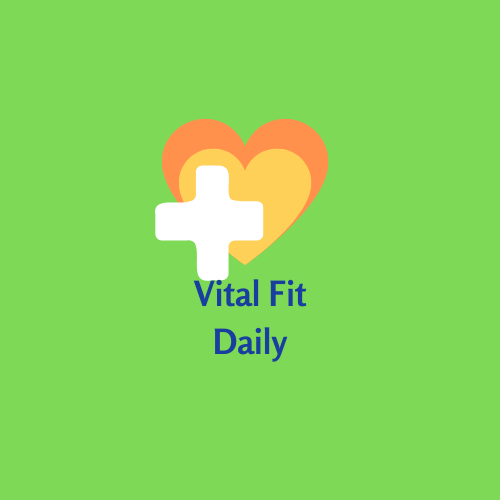Hello guys, welcome to my new article. In it, you will learn how to lose weight quickly postpartum. So, let’s start this useful article.
The following tips can help you to lose weight quickly after pregnancy.
1. Keep your goals realistic
Despite what celebrity stories and magazines would have you believe, losing weight after pregnancy takes some time.
In a 2015 study, 75% of females were heavier one year after giving birth than they had been before their pregnancy. Of these women, 47% were at least 10 lbs heavier at the one-year mark, and 25% had kept on 20-plus pounds.
It depends on how much weight you gain during pregnancy, it is realistic to expect that over the next one to two years you could lose around 10 lbs. If you gain more and more weight, you may end up a few pounds heavier than you were pre-pregnancy.
Of course, with a good exercise and eating plan, you should be able to achieve any healthy level of weight loss that your doctor gives a good sign. [how to lose weight quickly postpartum]
2. Breastfeed if you can

The World Health Organization, the American Academy of Pediatrics, and the CDC all recommend breastfeeding, this might help you to lose weight easily. Breastfeeding your baby during the first six months of life has many benefits for both your baby and you:
- Provides nutrition: Breast milk contains all the nutrients a baby needs to thrive and grow in the first six months of life, according to the WHO
- Supports your baby’s immune system: Breast milk also contains important antibodies
- This helps your baby fight bacteria and viruses.
- Lowers the risk of disease in infants: Breastfed infants have a lower risk of asthma, ear infections, type 1 diabetes, obesity, respiratory disease, sudden infant death syndrome (SIDS), and gastrointestinal infections.
- Reduces the mother’s risk of disease: Mothers who breastfeed have lower risks of ovarian cancer, high blood pressure, breast cancer, and type 2 diabetes.
Additionally, research has shown that breastfeeding can support your weight loss after pregnancy.
However, in the first three months of breastfeeding, you may experience some weight gain or no weight loss. This is due to increased calorie needs & intake, and reduced physical activity during lactation.
Also Read:- What is the 30 30 30 rule for weight loss?
3. Don’t crash diet
Here, crash diets are low-calorie diets that aim to make you lose a large amount of weight in the shortest amount of time possible.
After delivering a baby, your body needs good nutrition to recover and heal. In addition, if you’re a breastfeeding mother, you require more calories than normal, according to the CDC.
.This diet is likely to be lacking in important nutrients & will probably leave you feeling tired. This is the opposite of what you need when taking care of a newborn baby, plus when you are likely sleep-deprived.
Assuming your weight is currently stable, decreasing your calorie intake by about five hundred calories per day will stimulate safe weight loss of about 1.1 pounds per week. This amount of weight loss is considered safe for breastfeeding mothers, according to the Academy of Dietetics and Nutrition.
For example, a woman eating 2k calories every day could burn an extra 200 calories and eat 300 fewer calories through exercise, making a reduction of 500 calories in total. [how to lose weight quickly postpartum]
4. Monitor your calorie intake

We all know, calorie counting is not for everyone. But if you are finding that eating intuitively just does not seem to be working, monitoring calories can help you work out how much you’re eating & where any problem areas in the eating plan may be.
It can also help you ensure you are getting enough calories to provide you with the nutrition and energy you need.
You can do this by:
- trying a mobile calorie-tracking app
- taking pictures of your food as a reminder of what you’ve eaten indecent the past.
- keeping a food diary
- sharing the daily calorie intake with a buddy who is also monitoring calories for accountability
Using these techniques can help you choose healthier foods and portion sizes, which helps with weight loss.
5. Stock up on healthy proteins
Including protein in your diet can decrease appetite, boost metabolism, and reduce calorie intake, according to research published in the American Journal of Clinical Nutrition.
Some studies show that protein has a greater “thermic” effect than other nutrients which helps in weight loss. That means that your body uses more energy to digest it than other types of foods, which results in more calories burned.
Also shows that protein is also able to suppress the appetite by increasing the fullness hormones GLP-1 & GLP, and reducing the hunger hormone.
Healthy protein sources include:
- Eggs
- legumes
- lean meats
- low mercury fish
- Seeds and nuts
- Dairy
Also Read:- What Vitamins Are Good For Losing Belly Fat?
6. Eat foods high in fiber

This is the time to get those healthy veggies and grains on your shopping list. Eating foods that are high in fiber has been shown to help with the weight loss process.
For example, a 2019 research of 345 people found that an increase of 4 g of fiber over what participants had eaten before the study led to an average additional weight loss of 3.25 pounds over six months.
Soluble fiber foods may also help you feel fuller for longer by reducing hunger hormone levels and slowing down digestion, according to a 2015 clinical trial.
These effects on your digestion may help reduce the calorie intake, though the results of studies overall are mixed. [how to lose weight quickly postpartum]
7. Avoid added refined carbs and sugar.
Though they may be tempting, refined carbs and sugar are high in calories & usually low in nutrients. And there are delicious and healthy alternatives.
Research associates a high intake of added refined carbs and sugar with an increase in weight, some cancers, heart disease, diabetes, and even cognitive decline.
Common sources of added sugars include:
- fruit juice
- sugary drinks
- sweet spreads
- any type of refined sugar
- pastries
- white flour
- cakes
- biscuits
When you are choosing food at the grocery store, read the food labels. If sugar is one of the 1st ingredients on the list, that product is probably better to avoid.
This is easy to reduce your sugar intake by avoiding processed foods and sticking to whole foods such as fruits, vegetables, fish, legumes, meats, eggs, yogurt, and nuts.
8. Keep healthy snacks handy

The foods you’ve around can have a huge effect on what you eat. When you’re searching the pantry for something to munch, this healthy alternative is just the ticket.
By stocking up on healthy snacks, you can ensure you have something close at hand when the mood strikes. Here are some to keep on hand:
- cut hummus and vegetables
- dried fruit and mixed nuts
- seaweed snacks
- Homemade granola and Greek yogurt
- spiced nuts
- air-popped popcorn
- string cheese
Some research shows that just keeping fruit out on the counter has been associated with a lower body mass index (BMI).
Some studies showed that having unhealthy foods out on the counter is associated with increased weight. Pro tip: Keep processed sweets and foods out of the kitchen, or even better, out of the house.
9. Avoid alcohol
Some research has shown that small amounts of alcohol, such as a glass of red wine, do have important health benefits.
Here, when it comes to the weight loss process, alcohol provides some calories without much in the way of nutrition.
Additionally, alcohol may be related to weight gain & may lead to more fat being stored around the organs, also known as belly fat.
According to research, there is no known safe level of alcohol for infants. The CDC advises that the safest option for infants is for breastfeeding women not to drink at all.
When you’re in the mood to celebrate, I would like to recommend something low-sugar and bubbly like unsweetened flavored sparkling water. [how to lose weight quickly postpartum]
Also Read:- Which Exercise Is Best For A Bigger Chest?
10. Drink enough water

Stay hydrated, guys. Drinking enough water is vital for anyone trying to lose extra calories. The CDC points out that choosing water over just one 20-ounce sweetened beverage can save you two hundred forty calories.
Some research says that drinking water may increase your stimulate your metabolism and sense of fullness, leading to weight loss.
However, some studies, Another study suggests there is zero conclusive correlation between weight loss and water consumption.
However, for breastfeeding women, no question that staying hydrated is important to replace fluids lost through milk production.
A common recommendation from health authorities is to drink eight eight-ounce glasses, which amounts to half a gallon, or about 2 liters. This is easy to remember as the “8 by 8 rule.”
The 8 by 8 rule is a good goal that can assist with weight loss & keep you hydrated. However, women who are exercising strenuously and breastfeeding may need more.
I’d say plain water is best, but unsweetened sparkling water once in a while can add some variety.[how to lose weight quickly postpartum]
FAQ’s
FAQ 1: How long does it typically take to lose weight after pregnancy?
It’s different for everyone, but losing weight postpartum can take time. On average, it’s realistic to aim to lose about 10 pounds within one to two years after giving birth, depending on how much weight you gain during pregnancy. With a balanced diet and regular exercise, you can work toward your goal gradually and healthily.
FAQ 2: Can breastfeeding help with weight loss?
Yes, breastfeeding can support weight loss for some moms! It burns extra calories and helps your uterus return to its pre-pregnancy size faster. However, it’s common not to see weight loss immediately during the first three months due to increased calorie needs and lower physical activity levels during this time. Focus on nourishing yourself and your baby first!
FAQ 3: Should I try a crash diet to lose weight quickly?
Crash dieting is not recommended postpartum. Your body needs proper nutrition to recover, especially if you’re breastfeeding. Instead, aim for gradual weight loss by reducing your calorie intake by about 500 calories daily—this can help you safely lose about 1 pound per week without compromising your health.
FAQ 4: What foods should I eat to help with postpartum weight loss?
A diet rich in proteins and fiber can work wonders! Include foods like eggs, lean meats, legumes, whole grains, and plenty of vegetables. These keep you full for longer, boost metabolism, and help manage hunger hormones. Avoid refined sugars and processed carbs as much as possible.
FAQ 5: How important is water intake for postpartum weight loss?
Staying hydrated is crucial! Drinking enough water can help manage hunger, support your metabolism, and replenish fluids lost during breastfeeding. Try to follow the “8 by 8” rule (eight 8-ounce glasses daily), but adjust if you’re active or breastfeeding more frequently. Unsweetened sparkling water is a great alternative if you want variety.
The bottom line
Carrying some extra weight after pregnancy is very common & nothing to get down on yourself about. Your body did an amazing thing.
But getting back into a healthy weight range is beneficial for your health & any future pregnancies so it’s worth working at.
Being healthy will allow you to enjoy time with your baby & get the most out of being a new parent.
The most and best achievable way to lose weight is through a healthy diet, exercise, and breastfeeding. Talk to your healthcare team for advice, tips, and support.
Thank you for reading this article.
